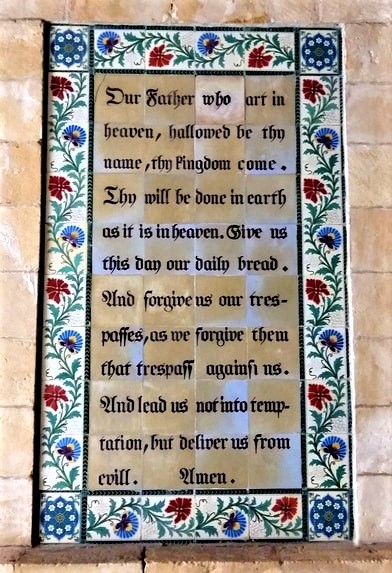Solitude was an integral part of Jesus’ ministry, as he often broke away from the crowds to pray in quiet places. While we are currently forced out of contact with even the smallest crowd, we may consider this an opportunity to walk in the ways of Jesus, to seek solitude with him, and to “Be still, and know that I am God.” (Psalm 46:10)
Fr. Nick Hamilton of Old North Abbey in Knoxville, TN, encourages us to sit in the belovedness of the Lord’s Prayer.

Fr. Nick Hamilton, Old North Abbey
As I’ve been sitting with a text for an upcoming morning prayer homily for ADOTS, I’ve been struck, once again, by how solitude and the subsequent silence found therein are meant to be used for strengthening our understanding of who we are in Christ.
Mark 1:1-13 describes Jesus at the beginning of his ministry, beginning with his baptism by John in the river Jordan. What has been standing out to me more vividly is the timing of two things. First, Jesus comes up out of the water to hear his father’s voice proclaiming, “You are my beloved son; with you I am well pleased.” And second, the Spirit “immediately drives [Jesus] out into the wilderness.” This second piece has always seemed like some form of test from the Father, a “prove to me you can do this” type of test. But as I have been reading (Comer talks about this) and studying and sitting with this passage, as well as the idea of silence and solitude, I have come to recognize that this time was a gift to Jesus. The Spirit drove Jesus into the wilderness to solidify his identity, to strengthen his understanding of his sonship, to provide space for Jesus to do nothing but sit in the reality of his belovedness.
This is how silence and solitude strengthen us. The noise that surrounds us in this world is designed to prevent us from living into who we are as sons and daughters of the King. When we’re alone, and it often takes more than an hour or two, we are presenting ourselves and God with the opportunity to regard one another. To sit with Jesus and to know that I am the beloved, as he is the beloved, is part of the gift that we find, should we seek to place ourselves in solitude and embrace the silence that comes with it.

Church of the Pater Noster, Mount of Olives, Jerusalem
We see this nod toward our belovedness even in the Lord’s Prayer. Our catechism teaches that, “The most important prayer in the Christian faith is the Lord’s Prayer, so named because it is the prayer the Lord Jesus himself, the Son of the Father, taught his disciples to pray. It is vital to our lives as present-day disciples. It teaches us to know God as our Father[…]” (pg.65) We often in our times of prayer, especially as Anglicans, move through the Lord’s Prayer on our way to the next portion of our Morning or Eucharistic Prayers, rather than sitting in the Lord’s Prayer. When space and time are provided, we are invited to reflect more deeply on those first words of the prayer that Jesus models for us: “Our Father.” The very words are an embrace, an invitation, to sit in the lap of God, to silently regard him for who he is and thank him for who we are through his beloved son.
Being the beloved means that in Solitude we are never alone, and in Silence there is always an undercurrent of truth being spoken to us. “You are my beloved child, with you I am well pleased.” The world, the enemy, and often our own ambition and goals prevent us from hearing these words. Silence and solitude provide us the space and time to remember who we are and be strengthened in our identity.
